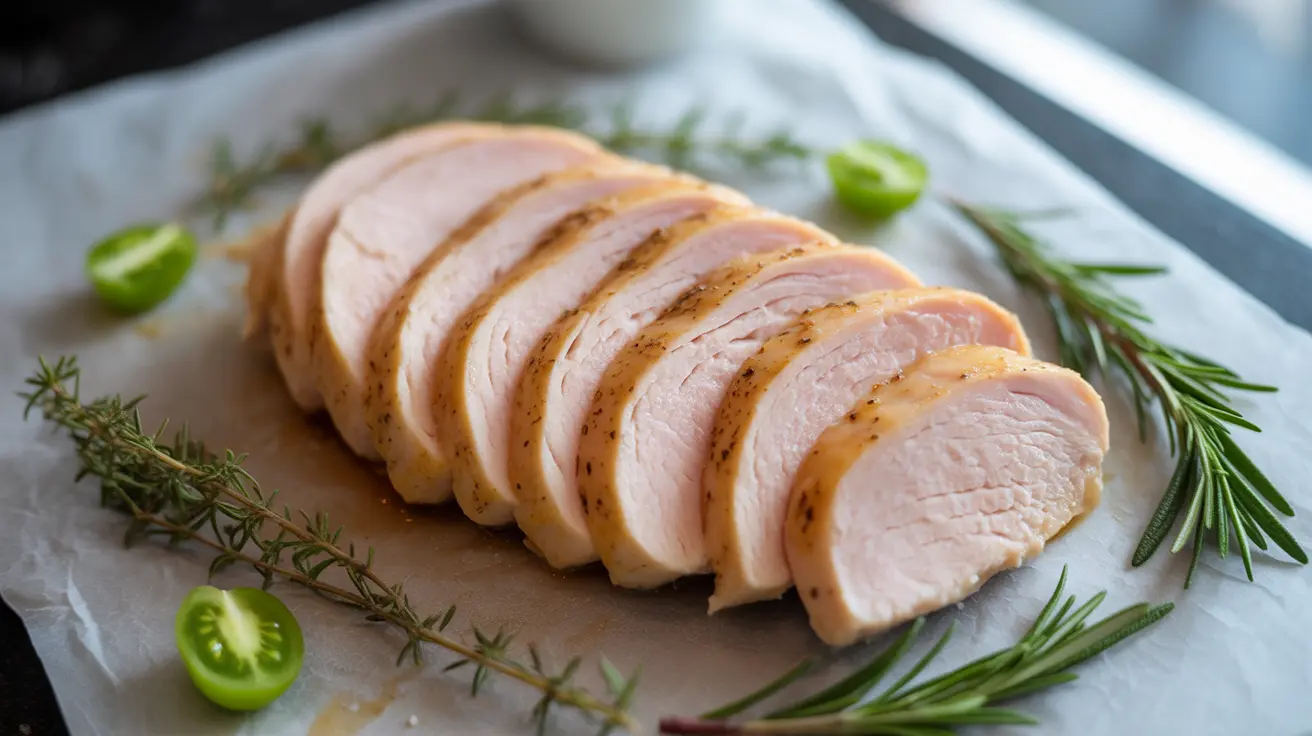Chicken breast is widely recognized as one of the most popular sources of lean protein, making it a staple in healthy eating plans worldwide. Understanding the protein content and nutritional profile of chicken breast can help you make informed decisions about your diet, whether you're focused on muscle building, weight management, or overall health.
In this comprehensive guide, we'll explore everything you need to know about the protein content in chicken breast, including how cooking methods affect its nutritional value and the various health benefits it offers.
Protein Content and Nutritional Value
A 100-gram serving of cooked, skinless chicken breast contains approximately 31 grams of protein, making it one of the most protein-dense food options available. This high protein concentration, combined with its relatively low calorie content, makes chicken breast an excellent choice for those focused on maintaining a healthy diet.
Comparing Different Cuts of Chicken
While chicken breast is known for its high protein content, it's worth comparing it to other cuts of chicken to understand why it's often the preferred choice for health-conscious individuals:
- Chicken Breast (100g): 31g protein, 165 calories, 3.6g fat
- Chicken Thighs (100g): 26g protein, 209 calories, 11g fat
- Chicken Wings (100g): 27g protein, 203 calories, 13g fat
Impact of Cooking Methods
The way you prepare chicken breast can significantly affect its nutritional content. Different cooking methods can impact both the calorie count and protein availability:
- Grilling: Minimal added calories, helps retain protein content
- Baking: Preserves nutrients while keeping added fats low
- Pan-frying: May add calories depending on oil usage
- Boiling: Maintains protein content but may lose some B-vitamins
Additional Nutritional Benefits
Beyond its impressive protein content, chicken breast offers various essential nutrients that contribute to overall health:
- B-vitamins (especially B6 and B12)
- Selenium
- Phosphorus
- Zinc
- Niacin
Benefits for Fitness and Weight Management
Chicken breast's high protein and low-fat profile make it particularly beneficial for specific health goals:
- Muscle building and recovery
- Appetite control and satiety
- Weight management
- Metabolic health support
Frequently Asked Questions
How much protein does a cooked, skinless chicken breast contain per 100 grams?
A cooked, skinless chicken breast contains approximately 31 grams of protein per 100 grams serving. This makes it one of the most protein-dense food options available for a healthy diet.
What are the differences in protein and fat content between chicken breast and chicken thighs?
Chicken breast contains approximately 31g of protein and 3.6g of fat per 100g, while chicken thighs contain about 26g of protein and 11g of fat per 100g. Chicken breast is leaner and has a higher protein-to-fat ratio.
Why is chicken breast considered a good choice for people trying to build muscle or lose weight?
Chicken breast is ideal for muscle building and weight loss due to its high protein content, low-fat profile, and relatively low calorie count. The high protein content supports muscle recovery and growth, while the low calorie density helps maintain a caloric deficit for weight loss.
How does cooking affect the calorie and protein content of chicken breast?
Cooking methods can affect the calorie content primarily through added fats, but the protein content remains relatively stable. Grilling and baking maintain the original nutritional profile best, while frying can add significant calories through oil absorption.
What vitamins and minerals are found in chicken breast besides protein?
Chicken breast is rich in various nutrients including B-vitamins (particularly B6 and B12), selenium, phosphorus, zinc, and niacin. These nutrients support energy metabolism, immune function, and overall health.




